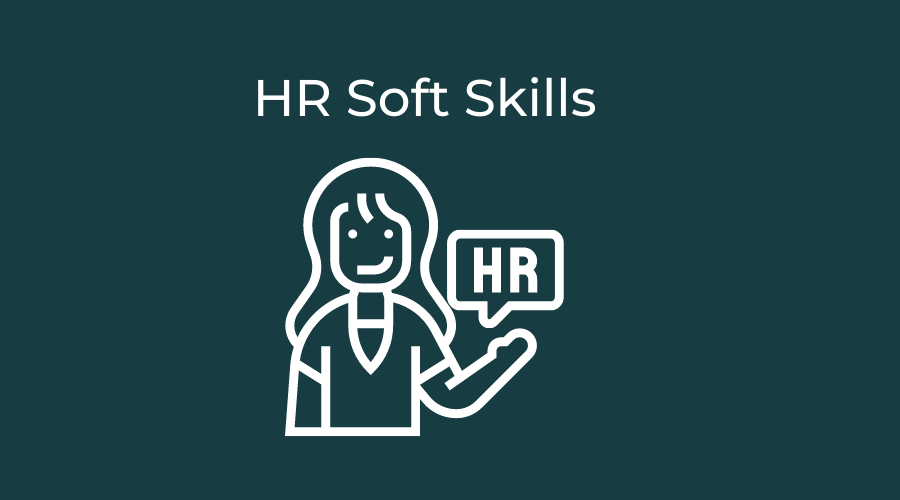Well-developed skillsets, and the ability to communicate them clearly to employers and hiring managers, place candidates apart in the interview process and throughout a career trajectory. Navigating what skills to focus on in a particular position can be difficult. Discovering hard skills and developing technological abilities is a matter of research and practice. In contrast, soft skills do not always come naturally to every human resource professional.
In today’s human resources world, soft skills are becoming increasingly desired to become a successful HR professional. Soft skills focus on social reliability and emotional intelligence. They can be the key differentiator between a qualified employee and an employee that grows themselves towards management. Superior HR professionals will have both hard and soft skills.
Most of the time spent in human resources is in dealing with human interaction. Hiring, firing, managing, developing, and leading people are all essential to the job. This is the area where soft skills are going to enhance the ability to thrive. So, what are the essential soft skills? Below are eight soft skills every human resource professional could gain from growing.
EMPATHY
It is no mistake that empathy falls at the top of the list. The ability to feel and understand what employees are experiencing in any day-to-day situation both in and outside of work is essential. As a renowned author, speaker, and social work researcher, Dr. Brené Brown suggests:
Empathy fuels connection
Empathy is fuel to the humanness of human resources. It is the skill that draws HR into the progressive era by pressuring companies to see employees as more than a number.
RELATIONSHIP BUILDING
Commonly referred to as employee relations, the soft skill of relationship-building can be helpful not only in creating a culture of trust with employees but also in transforming HR into a strategic business partner in the eyes of c-suite executives. Authentic relationships create a culture of community within an organization—a culture of community leads to higher retention, lower turnover, cost savings, better performance, and ultimately increased revenue.
COMMUNICATION
Several of the top reasons employees leave an organization can be linked back to poor communication. Whether it’s the inability to be tactful in a difficult conversation, not providing clarity, or writing emails that need to be in-person discussions, well-rounded communication skills are crucial to the HR professional.
ORGANIZATION
Every day in HR is different. Moment to moment can often hold a variety of tasks. The ability to multi-task and stay organized while doing so is vital. When managing highly sensitive and confidential information whether on physical paper or electronically, organizational skills are required. Making a mistake due to disorganization could cause a major blunder or even break the law due to incompliance.
CREATIVITY AND INNOVATION
Human resources is a constantly changing field. Maintaining a spirit of creativity and strategy of innovation can keep an organization at the peak of its industry. Right now, human resources departments countrywide are facing an extremely tight job market, getting creative has been the only way to continue hiring amidst the great resignation. Innovation with ever-evolving policies, tech, and employee priorities keeps human resource professionals relevant.
CRITICAL THINKING
HR Daily Advisor describes critical thinking as
an essential component of effective decision-making. It’s valuable at all organizational levels.
In human resources, well-informed and data-driven decision making is key to becoming a valued member of organizational leadership. Those with developed business acumen know and understand the importance of providing advice that is not only backed by proof but also advances the goals of the company. Every decision is an opportunity to use critical thinking to become more effective and increase productivity.
ADAPTABILITY and COMPOSURE
If the last two years have shown the necessity of any skills, its adaptability. Human resource professionals often face unprecedented situations. To remain adaptable and maintain composure amidst high-stress conditions is essential for leaders in an organization. This unflappable representation has a downward effect of keeping the masses calm and open to change.
LEADERSHIP
Employees of the human resources department, even non-managerial, are likely perceived as leaders in the company. Leading by example is the most effective way to get employees on board with policies, culture shifts, and productivity. Leadership done well can be the accelerant for success in an organization. Healthy leaders who know both how to take charge with humility and serve employees with a gracious heart will be the catalyst for health in any company.
Stephanie Mauney is freelance writer and content curator specializing in Human Resources.

